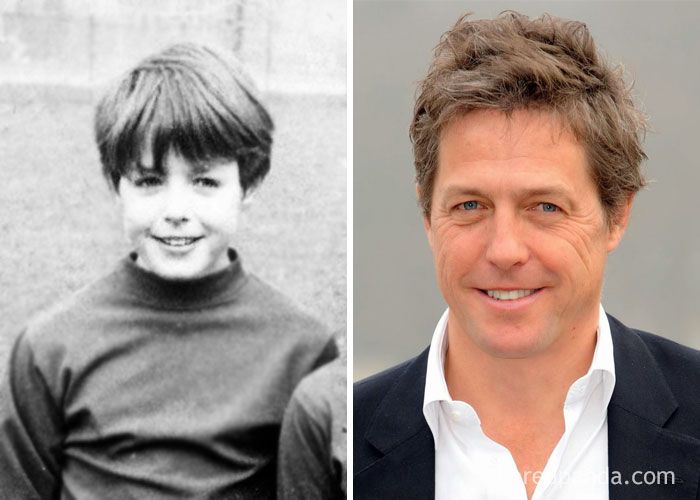A Drama This is Privilege And Guilt In a New York Childhood

Some Drama fall short of their ambitious goals. It isn’t easy to truly comprehend Armageddon Time, novelist James Gary’s follow-up to his sad-dad masterwork Ad Astra, without succumbing to its well-intended spell.
When Armageddon Time opened in France, it positioned late-twentieth-century queens at the core of contemporary American societal problems. It portrays the white middle class in this borough as a hotbed of casual racism, as benefactors of the baked-in racism of primarily white-run institutions, and as the spearhead of the regressive right’s political ascendancy – including the Trump family.
The film bases its viewpoint on the protagonist’s personal experience and a historical perspective that reaches beyond Paul’s Queens neighbourhood.
Look At “Armageddon Time,” A Drama Story

The film’s story, planned in 1980 and mainly based on writer-director James Gary’s childhood memories, involves the alter ego, a sixth grader named Paul Graff (Banks Repeat), as he comes to terms with the highly prevalent privilege and unquestioned injustices he faces. When We reach the film now that it’s publicly accessible, we were surprise by its emphasis on the underlying origin of Paul’s awakening – remarkably, his secular Jewish upbringing in New York, which is quite similar to Gary’s. “
Armageddon Time
Armageddon Time” is more than an acknowledgment of a severe societal sickness that has to be address. More than a negative. It is also a hopeful vision of a catalyst for political progress: the partnership of the Jewish and black communities.
Esther (Anne Hathaway), Paul’s mother, is the chairman of the PTA at Paul’s primary school; Irving (Jeremy Strong) is an electrical contractor. They stay in a little house close to Paul’s campus, the actual PS 173. (I grew up about a mile to the east.) Aaron Rabinowitz (Anthony Hopkins), Paul’s paternal grandpa, is a continuous presence in the Graff family. He is the son of a refugee from Ukraine who was rear in England before moving to the United States in his teens.
Armageddon Area
We saw Armageddon Area several times and can attest to the tremendous dramatic shock of being left outside in the cold. The movie is a real horror story about a practical and moral crime. On the first day of class, Monday, September 8, 1980, Paul, an aspiring young artist and somewhat of a class comedian, is also a loner who quickly establishes a bond with another young, lonely, and fun classmate, Johnny Davis (Jaylin Webb).
Johnny is a sixth-grade pupil continuously bullied by Mr. Turkeltaub, a Caucasian, ill-tempered, middle-aged teacher (Andrew Polk).
Johnny Raises
Johnny raises himself (he lives with his dementia-ridden grandma), but Paul grows up quite comfortably (mistakenly mistaking his parents’ problematic middle-class adequacy for affluence). When their exploits get them in hot water, Paul’s father beats him and sends him to a rigid and stuffy local prep school where the Trump family is a significant role.
Paul and Johnny are looking for a way out of their life, and Paul devises a plot; Johnny joins in, and when things go wrong, unsurprisingly, the repercussions are considerably more severe for Johnny than for Paul.
New York’s secular Jewry
The cultural effluents of New York’s secular Jewry fill the crevices of “Armageddon Time,” beginning with the neighbourhood itself – when Mr. Turkeltaub calls up the list, the first few names are Ashkenazy, Breslow, and Cohen. When Aaron is keeping a secret from Paul, he speaks to Esther in Yiddish, and Paul’s parents say it with an instantly recognizable, forceful tone that builds on the accents of their own parents’ Yiddish.
When a family member dies, the tradition of sitting Shiva is perform, although it typically means supper is late Because there is little religion in the household. On the other hand, Paul hears from his great-aunt Ruth (Marcia Haufrecht) of her work for the US government in Czechoslovakia, reconnecting displaced individuals at the conclusion of WWII – and pointing to Kiddush cups (for Sabbath meals) that she had taken with her. Relics of Jews murdered during the Holocaust.
Paul’s grandfather Aaron
Paul’s grandfather Aaron is his closest family member. What Paul gets from him, in addition to gifts, candies, emotional support, and delicate care – now that he appears to have matured enough to hear it – is the account of Aaron’s journey to America. It’s a story of persecution and violence, beginning with a pogrom in Ukraine that killed Aaron’s maternal grandparents in front of their daughter.
This teenage girl fled the country and went to Liverpool, where she married and gave birth to Aaron before he immigrated to the United States. Aaron adds the warning: “Never forget the past, because you never know when they will come looking for you.”
Paul overhears kids
In another episode of loving but brusque frank contact between grandpa and grandson, Paul overhears kids at his new private school making racial slurs, and Aaron inquires about his reaction. “Of course, nothing,” Paul responds, whereas Aaron’s answer is caustic, reproachful, and admonishing. Aaron demands that Paul “say something,” telling him that “you were raise better.”
He encourages Paul to “be human,” that black people don’t have Paul’s “perks,” and that the same individuals are making racist remarks against Jews. In other words, he positions the Jewish partnership with blacks as a question of self-awareness of Jewish identity and humanism principles.
Response to Racist Offenses
After that, it to say that Paul’s “nothing” in response to racist offenses – a “nothing” from which Paul benefits – is the moral void around which the entire film is organize; it is a mark of cowardice that tears him from the innocent boldness and private pain of his childhood and burdens him with a life of shame and guilt, a sense of external responsibility for a debt he can never repay.
Even though Paul’s father begs him, “Don’t look back,” Aaron’s lesson in keeping the horrors of history in mind and his advice, “Never give in to them bastards,” torment Paul.
(“Armageddon Time” becomes a political ghost narrative, the creation of a political superego via a ghostly recollection.) Paul established himself in a world that embraces him but not Johnny because of his whiteness; however, Aaron warns that this assumption is premature and false. Paul and all American Jews bear a moral duty because they are both despised and differentially favoured.
However, Paul receives conflicting information from the rest of his family. When Irving misidentifies Johnny (whom he’s never met) as a vagrant, the incident highlights another racial shibboleth: the link of black people with criminality.
Nevertheless Bears Political Weight
This fanciful association nevertheless bears political weight. Mickey (Tova Feldshuh), Paul’s grandmother and Aaron’s wife, worries about the inflow of black pupils at Paul’s school; Esther chastises her for the statement, but it’s not the only surface racism Paul experiences at home.
The confusion of contradictory messages Paul receives at home and in public generates a virtual cacophony of opposing thoughts and imperatives in his head, which exacerbates his murky association with Johnny. This bond is depicted in a few well-defined scenes that illustrate Johnny’s inner anguish.
He’s one of the few black students in a predominantly white school; he’s a nerd whose ambition is to become an astronaut; he’s culturally aware enough to introduce Paul to early hip-hop work by Kurtis Blow and the Sugar Hill Gang, but — in an exemplary scene set on a subway — it’s clear that many in the black community don’t quite understand Johnny (and maybe vice versa), and his reaction when confronted with his outsider.
Johnny’s life
When we first saw Armageddon Time, We were astonished and disappointed that Gary didn’t explain Johnny’s life in more detail, even from Paul’s point of view, even though the play underlined Johnny’s reluctance to be with Paul in that one brief but devastating scene.
But I’ve also noted that Gary doesn’t go into great depth on Paul’s life; despite some subjective touches on fantasies and memories, the film is unusually silent about Paul’s reflections. Paul’s persona is partially stamped out and also obliterated.
Jaylin Webb
The essential performance here, though, goes to Jaylin Webb, in a character that has been attack for being too sparse — a critique that isn’t without truth but which risks equating screen time with depth and fails to consider how much of a role’s depth belongs to the actress rather than the screenplay.
The simple, unsettling reality is that neither Johnny nor Paul are white or privileged enough as Black and Jewish people. Both are designed to feel it. One has an opportunity to change things; the other is collateral damage, punished for making a friend.
Paul is primarily
For Gary, Paul is primarily a recording device whose movement through life gathers and allows his experiences and influences to covertly and implicitly amass his thoughts and point of view.
It isn’t an oversight; it’s an exceptional part of Gary’s long-standing style, a hallmark of his talent, but one that takes on a new function in this most personal of films.
Jewish and black New Yorkers
Moreover, in the 1960s, the New York City public school system played a critical part in severing the political coalition between Jewish and black New Yorkers. The focus was on parents in black areas attempting to win local control of schools and so hire black teachers.
Because teach was a hobby for many Jewish New York, local governance was meet with tremendous opposition from the teachers’ union, result in a long strike in 1968.
Revelation Provided In The Armageddon Time

Interracial friendship is a long-standing and complex subject in American culture. In virtually every case, the white character’s viewpoint is fundamental (these works are all first-person tales, as is “Armageddon Time” in a perceptible if not literal sense).
Regardless of how heroic
Regardless of how heroic, beautiful, or sad the Black character is, he serves as the vehicle for his companion’s moral enlightenment.
“Armageddon Time” is steep in this history, but it is also realistic about its limits. Gary narrates the account of Paul’s realization of racial and social injustices, but he doesn’t imply that this terrible information can redeem him, let alone save Johnny.
Neither Johnny nor
Neither Johnny nor the Graff family is surprise by the savagery of American prejudice. They are Jews whose rise to the American middle class has been overshadow by generational memories of Cossacks and Nazis in the old world and less fatal encounters with antisemitism in their new country.
However, “Armageddon Time” is more interested in probing the paradoxes they occupy, the swirl of contradictory messages, and ethical compromises that characterize Paul’s growing perception of the world and his role in it.
He hears a lot about hard work and independence, as well as the value of relationships, even from one of the Winners. He is tell that the game is rig against him and in his favour. He’s said to blend in, fight back, and pursue his aspirations while being realistic.
Aspirations
The movie’s authenticity and good intentions are evident, as are its aspirations in bringing in Ronald Reagan’s election. The future potential of Donald Trump as linked to Johnny’s troubles and the obstacles of being a mensch.
The film captures a vivid and evocative feeling of time and location, and several sequences, particularly those involving Repeat and Hopkins, are moving. As Paul’s mother, Hathaway is warm, amused, and occasionally indulgent.
One of the finest sequences in the film is when she defends him to the principal, and then once they’re out of his office when she can express what she believes. And she is incredibly moving when we, if not Paul, realize she has received some awful news.
Wrap UP

The film fails to create additional realistic characters. Strong’s father may be harsh or compassionate and understanding depending on the tale, a change that is not fully justified by his experiences. The characters of the brother and the public school teacher are almost caricatures.
Alarmingly, the writing fails to provide Johnny with a fully formed, realistic persona. The film is essentially an apology to Johnny and the other children like him who were not appropriately care for at home and repeatedly mistreat by all the people and structures that should have support them. It’s painful to witness Johnny belittled by his instructor and older Black students who mock him for aspiring to work for the Space Agency.


